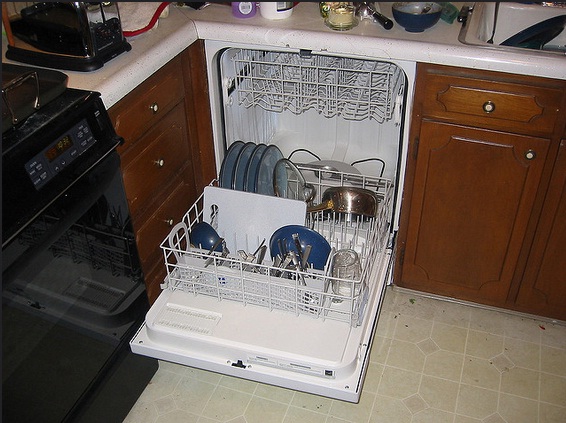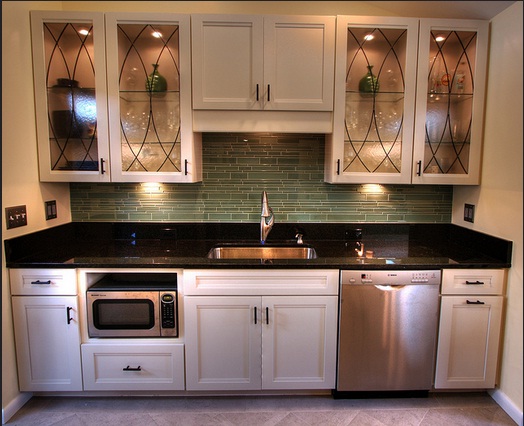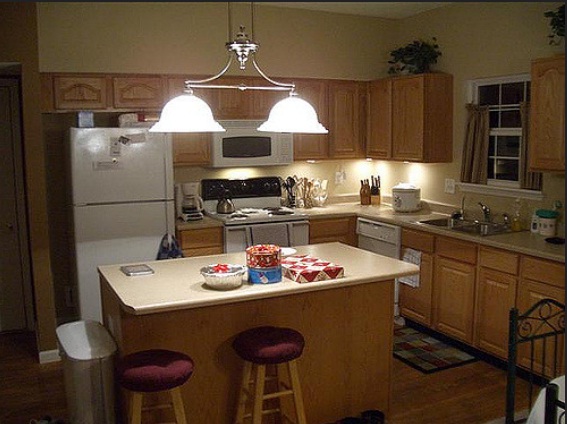Cabinets are used more than any other appliance or material in the kitchen. They are more exposed to dust and bacteria more than any other material or appliance. This means that we should properly care for them and do regular maintenance. Below are some tips and ideas that will make sure your cabinets will last longer and shine like the day they were installed!
Maintenance of Kitchen Cabinets
-
Cleaning them on regular basis is very important –
Regular cleaning will help prevent long- term damage to your cabinets finish. Use a cleaner that is recommended for your particular cabinets, and a dry cloth. First wet a cloth in dish soap water, then scrub near the hardware edges and in the corners of the cabinet faces. Then wipe off the fronts of the cabinets with a dry cloth. You can also use detergent, vinegar and baking soda for cleaning your wooden cabinet.
-
Dusting should be done regularly-
For dusting, you should use a clean, soft lint – free cotton cloth. Do not use packaged dusting and pre- moistened dusting sheets.
-
Wipe spills immediately-
Many substances can become difficult to remove and may stain or can cause permanent discoloration or damage to your cabinet’s surface. So if any spills occur, wipe it off immediately with a soft cloth. Don’t forget to immediately dry the surface after cleaning.
-
Should waxing and polishing be done? –
The answer to this question is a big no! Waxing and polishing can give a hazy or yellowed appearance to the surface of your cabinets and damage the surface of your cabinet.
-
Protect cabinets from Moisture-
Cabinetry near the sink and dishwasher can be affected by moisture. Do not place dish towels or other wet items over cabinet doors. Keep the cabinets dry at all times
-
Avoid excessive heat-
Self cleaning appliances such as ovens generate a lot of heat during a cleaning cycle and if this heat escapes from the oven, it can damage your cabinets. So make sure you protect your cabinet doors and drawers that are near the oven before using its self cleaning feature. This will help to prevent possible damage to the cabinets.
-
Avoid light damage-
Direct sunlight can darken the color of natural wood products. It can also fade painted, laminated and thermo-foil wood surfaces. Use blinds to make sure your cabinets are safe from direct sunlight.Should waxing and polishing be done? – The answer to this question is a big no! Waxing and polishing can give a hazy or yellowed appearance to the surface of your cabinets and damage the surface of your cabinet.
-
Avoid excessive moisture-
Moisture is one of the worst enemies of cabinets. Cabinetry near the sink, dishwasher and baseboards are more prone to moisture. Moisture can cause permanent damage, like peeling and discoloration, to the cabinet’s finish. Dry cabinets off immediately any time water or liquid has spilled. Avoid draping damp clothes or dishtowels over cabinet doors as well.

-
Humidity control is important-
Humidity control is important! If it is not controlled it can cause wood to expand and contract, swell or wrap and dry out. It will damage wood and your cabinetry.
-
Roller and Ball bearing slide systems-
These slides are lubricated with grease from the manufacturer to ensure smooth quit operation and long life. Don’t remove this grease during cleaning.
-
Cleaning of glass cabinet doors-
Extra care is required to clean the glass doors. To clean, spray an ammonia- free glass cleaner on a soft, clean, cloth or paper towel and then wipe the glass. Be sure not to spray cleaner directly on the glass as it can cause damage by seeping behind the dividers.

-
Cleaning of hardware-
Use mild soap and warm water to clean door/ drawer knobs or pulls. After that dry all hardware joints, surfaces and the surrounding area with a clean, soft cloth. Hinges can be cleaned using cotton- tipped swabs and wetting them is not necessary.
Some important things to consider
- Avoid using products that are solvent based or petroleum based like nail polish removers or paint thinners.
- Avoid using cleaning products that include ammonia and bleach.
- Do not place heavy loads on shelves and drawers. It can shorten the life of moving parts.





